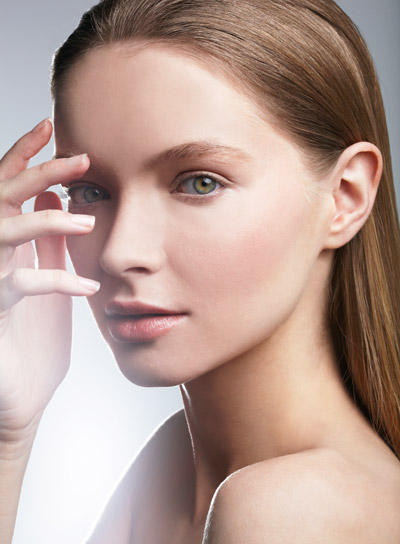You’ve probably heard of retinol, but you may not know what the powerful skincare ingredient is for. And, we wouldn’t blame you. It’s generally touted as one of the most potent ingredients in combating the signs of aging (which we’re not worrying about quite yet), but did you know it’s also an amazing acne fighter? Thought not. We had a lot of questions about this powerhouse ingredient, so we put it to the pros. First though, what is retinol? Retinoids, including retinol, are derivatives of vitamin A. “Retinol” refers to the only form of the ingredient that is non-prescription, aka: available without a trip to the dermatologist.
Retinol
-
Retinol #1
By Sara Spruch-Feiner
You’ve probably heard of retinol, but you may not know what the powerful skincare ingredient is for. And, we wouldn’t blame you. It’s generally touted as one of the most potent ingredients in combating the signs of aging (which we're not worrying about quite yet), but did you know it's also an amazing acne fighter? Thought not. We had a lot of questions about this powerhouse ingredient, so we put it to the pros. First though, the very basic facts: Retinoids, including retinol, are derivatives of vitamin A. “Retinol” refers to the only form of the ingredient that is non-prescription, aka: available without a trip to the dermatologist.
-
How do you know if you are a good candidate for retinols?
Retinol is famous in the skincare world for a reason -- it gets the job done. But in a flooded cosmetics market, how do you know if you should bother with an ingredient that is often thought of as a prescription-endeavor? (More on this later as there are plenty of over-the-counter options). According to top NYC dermatologist Dr. Dennis Gross, it’s really pretty simple:
“Anyone who is serious about anti-aging should have retinol in their anti-aging routine.” More specifically, if you’re dealing with “the appearance of fine lines, wrinkles, sagging skin, lack of skin density, enlarged pores, or dullness,” you’re a good candidate for retinol products, according to Smitha Rao, StriVectin’s Vice President of Product Development & Regulatory.
Interestingly, retinol is a fight-back product rather than a preventative one: “This technology is extremely beneficial in reversing the visible signs of aging. While many other skin care actives such as antioxidants can also be used as a preventative solutions for the first signs of aging, retinol is not meant for preventative use.”
-
What should we know about side effects? How can we counteract them?
“If you are a first-time retinoid user or know your skin is sensitive, an over-the-counter retinol is a good place to start,” Dr. Dennis Gross explains. This is because the concentration is lower. “Typically, anyone who does not have an underlying skin condition, such as eczema, can tolerate retinoids,” Gross advises, referring to prescription products.
However, retinol can “cause a drying effect of the oil glands, which can lead to redness and flaking,” Rao explains. The technology is fairly evolved to reduce such reactions, but it’s important to be cautious when adding anything new to your skincare regimen and pay attention to any reactions you might have.
-
Are retinols good for our skin beyond aging and acne benefits?
In addition to powerful effects when it comes to reversing signs of aging, retinols also “stimulate the production of new skin cells and inhibit the body’s natural enzymes that break down collagen,” Dr. Gross explains. “They also help to fade dark spots resulting from photo-aging, hyperpigmentation, hormonal changes, and blemish scars.”
Retinol is known as the "gold standard of anti-aging," Rao explains. It encourages skin’s natural cell turnover, minimizes the appearance of pores, and enhances the look of skin’s firmness and elasticity while diminishing the look of lines and wrinkles.
-
Where in our existing skincare routines should we add the use of retinols?
Of course, the beauty industry has developed retinols in a number of varieties. making it easy to tailor to your desires.
If you know your skin can tolerate retinol, you can customize your usage with a booster product, like Paula’s Choice Resist 1% Retinol Booster, $50, which makes it easy to dispense a bit into your existing moisturizer -- and also makes you feel kind of like a chemist.
“For lines and wrinkles, I would recommend using retinol based anti-aging products as night treatments such as our Advanced Retinol Intensive Night Moisturizer ($112),” Rao says. “For visibly enlarged pores and imperfect skin texture, our Advanced Retinol Pore Refiner ($99) can be used during the day (as the last step before make-up). For a consumer who prefers serums, a concentrated serum that is lightweight can be used day or night,” Rao notes.
-
OTC Retinols
Retinol products like French pharmacy fave La Roche-Posay’s Redermic ($57) can be used in tandem with your existing moisturizer, while Swedish skincare line Verso (which has the chicest, minimal packaging) formulates all of its products with Retinol 8 -- their unique derivative of the Vitamin A in combination with vitamin B3 and polyphenols. Their Day Cream ($100) is a rich enough moisturizer to cover your bases. Finally, Natura Bisse Essential Shock Intense Retinol Fluid ($105) is an ultra-lightweight product making it good for blending for those of us who already need more than 10 fingers to count the steps in our skincare regimens.
-
More Retinol Options
Dr. Dennis Gross added ferulic acid to his retinol products which helps knock down their potentially irritating qualities. He’s created formulations of this exceptional duo in both serum (Ferulic Acid & Retinol Brightening Solution, $88) and moisturizer form (Ferulic & Retinol Anti-Aging Moisturizer, $72). The moisturizer is a great option for the A.M. as the ferulic acid helps fight free radicals and lessen sensitivity to UV rays. “Ferulic acid-active anti-oxidant protects collagen and reduces inflammation while fighting free radicals,” Dr. Gross explains.
Even so, after using a retinol, you should follow up with an SPF protection during the day.
